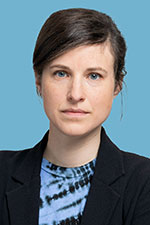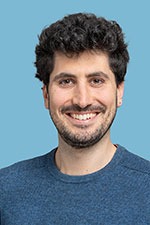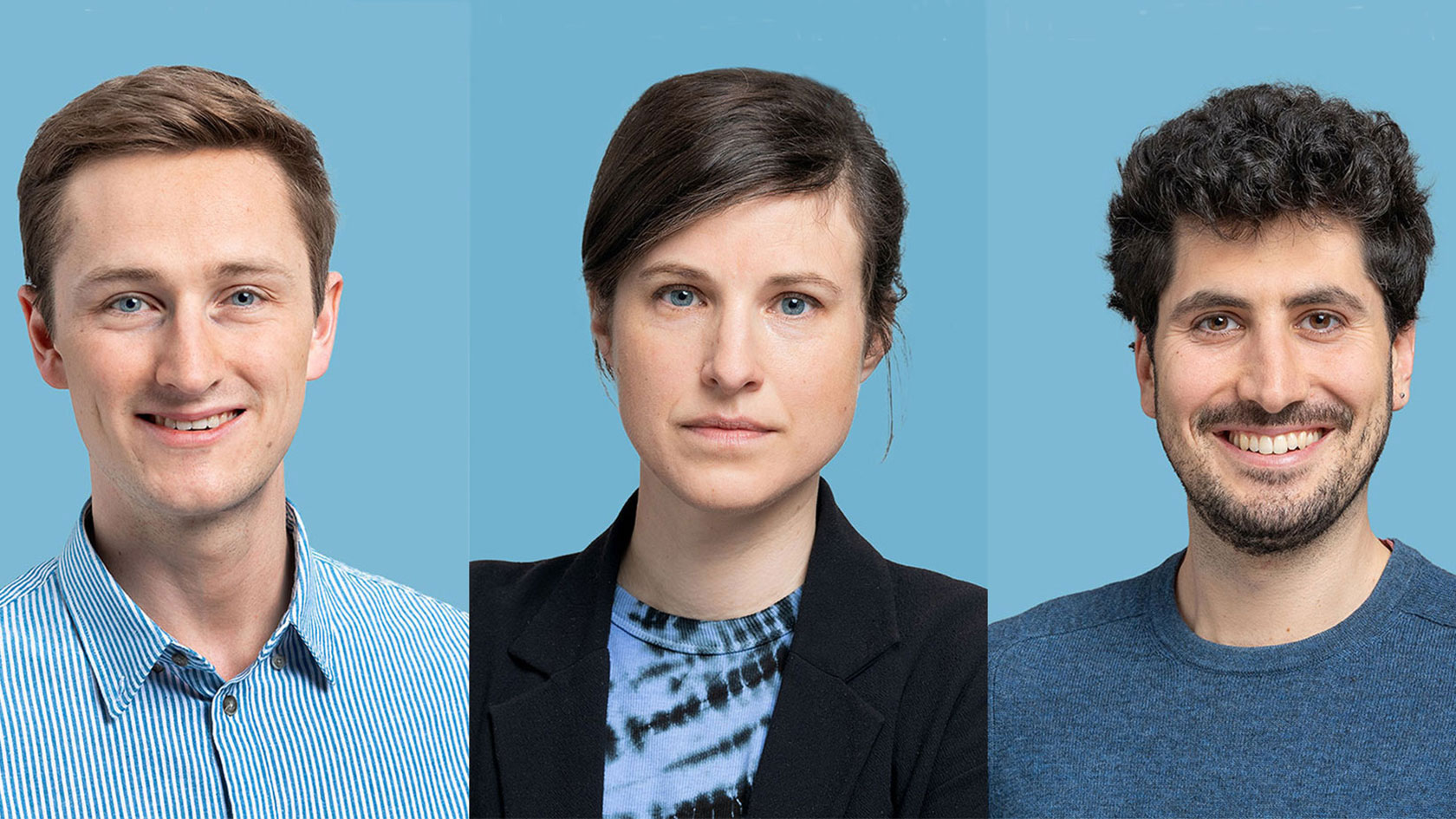Heart Attacks, Science Fiction and Lessons from Organic Agriculture
The award winners and their research projects are seen as having great potential: prospective cardiologist Florian A. Wenzl, sinologist Jessica Imbach and environmental economist Emilio Dal Re are each to receive a FAN Award for their outstanding scientific achievements.
The FAN Awards for UZH early career researchers are bestowed annually by UZH Alumini’s “Fonds zur Förderung des Akademischen Nachwuchs” (FAN). Each year, the faculties nominate three junior researchers in the areas of medicine and natural sciences, arts and social sciences, and law and economics. A jury organized by the Graduate Campus selects the winners.
Tailored heart attack treatments

With heart attacks being one of the most frequent causes of death worldwide, doctors know that targeted treatment after a heart attack makes the difference between life and death. When it comes to choosing a suitable treatment strategy, current guidelines recommend that cardiologists estimate the risk of death using clinical characteristics, the patient’s electrocardiogram, and laboratory parameters. However, the accuracy of these kinds of risk models is limited.
For his PhD studies at the Center for Molecular Cardiology, Florian A. Wenzl has developed a new risk assessment method that predicts mortality using artificial intelligence. Named GRACE 3.0, this novel risk score integrates the information gained from previous models and, using machine learning algorithms, is the first to take both non-linear correlations and gender-specific differences into account. The approach fulfils two aims: it raises the accuracy of the assessment and also considers each patient’s individual risk profile – with the result that more female patients benefit from life-saving early catheter treatment. The study he conducted to develop the risk score represents one of the largest investigations of heart attacks worldwide and was published in the scientific journal The Lancet. For clinical application, Wenzl has developed an online tool that was presented in a follow-up article also published in The Lancet and is available to doctors free of charge.
Science fiction as a social barometer

Since the late 1990s, Chinese science fiction has developed from a marginal literary phenomenon into a global cultural industry. This success story is not only seen as symbolic of China’s rapid technological transformation, but also as an important signal that China has overcome its alleged innovation deficit. But what ideas about the future is Chinese science fiction concocting? To what extent do they dovetail with the state’s visions – or not? And what is there to learn from contemporary science fiction literature about Chinese society’s experience of its country’s technological evolution? These and other questions are what Jessica Imbach, research assistant at the Institute of Asian and Oriental Studies, is studying in her postdoctoral research. In her work, she not only examines how science fiction deals with technology, but also the way in which the societal role of literature is being re-assessed by new media. One focus of her research is the topic of digitalization, leading to the publication at the end of this year of her book entitled Digital China: Creativity and Community in the Sinocybersphere (Amsterdam University Press).
Unwelcome side effects of certifications

Why do we pay a higher price for certified organic products? Many consumers believe that organic production not only helps protect the environment, but also improves the living conditions of producers, especially when the products come from low-income countries. In his research, Emilio Dal Re from the Department of Economics challenges this hypothesis by examining coffee farming in Latin America. More specifically: he analyzed the economic impact caused by the introduction of organic farming certifications on the agricultural sector. To carry out his study, he combined a series of statistical causal models with more innovative remote sensing and informatics tools.
Surprisingly, his results showed that due to organic certification many independent smallholders in Guatemala were forced to give up their farms and migrate abroad. In addition, villages that switched to certified organic coffee experienced declining employment levels and lower incomes. After traveling to Guatemala to speak to local coffee farmers himself, Dal Re found that a microscopic fungus called coffee rust was the cause. Because the organic farms had not protected their coffee plants with chemical pesticides, an unexpected outbreak of coffee rust in 2013 hit them harder than the conventional farms, leading to crop failures and job losses.
Dal Re’s thesis shows that organic agriculture is not always beneficial for farmers in risk-prone areas. Organic programs and certification bodies should pay more attention to the unintended economic consequences of organic agriculture.
